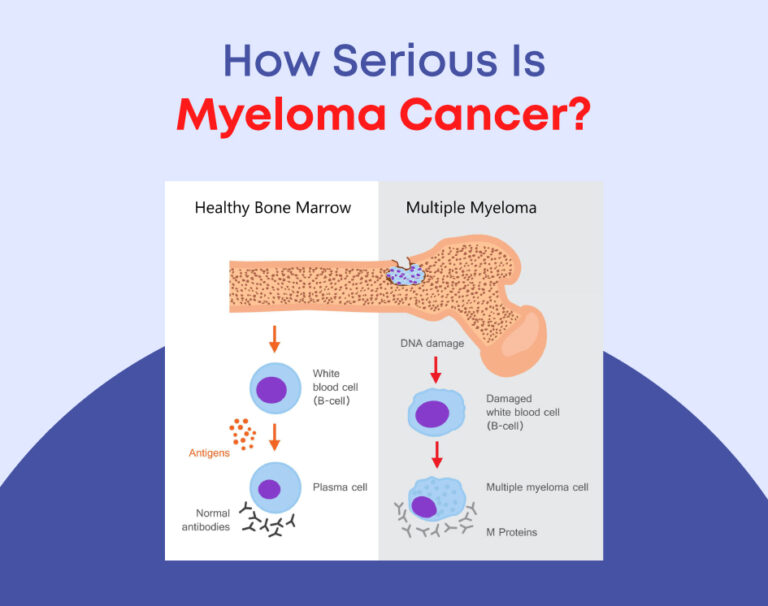
How Serious Is Myeloma Cancer?
Myeloma cancer, also known as multiple myeloma, is a severe medical condition that affects plasma cells, which are a vital part of our immune system. This article takes an in-depth look at the severity of myeloma cancer and its implications.
What Is Myeloma Cancer?
Myeloma cancer is a type of cancer that starts in plasma cells, which are white blood cells that produce antibodies to help fight infections. These plasma cells are primarily found in the bone marrow, the spongy tissue inside our bones. When cancerous plasma cells accumulate in the bone marrow, they outgrow healthy blood cells, leading to a range of complications.
How Serious Is Myeloma Cancer?
With advancements in medical research and early detection, the outcomes for patients with myeloma cancer have improved significantly. However, it is crucial to understand that myeloma is still considered a severe disease requiring targeted treatment.
One of the critical factors in assessing the seriousness of myeloma cancer is the stage at which it is diagnosed. The earlier the detection, the more treatment options are available, and the better the chances for a positive outcome. Early-stage myeloma may not cause noticeable symptoms, making it crucial for individuals at high risk to undergo regular screenings and check-ups.
Myeloma Cancer Statistics
Understanding the severity of multiple myeloma cancer requires us to delve into the statistics surrounding this condition. The Journal of Current Oncology stated that although the incidence of myeloma is lower in Asia (1.1 per 100,000) and in India (1.0 per 100,000) compared to the West (4.1/100,000), there is evidence of a gradual rise in myeloma incidence in metropolitan cities in India. Although the incidence of myeloma cancer is relatively low compared to other types of cancer, it is still a significant health concern.
According to the American Cancer Society, the mortality rate for myeloma cancer remains high, with an estimated 12,410 deaths expected in 2021. These statistics highlight the importance of understanding the seriousness of myeloma and taking proactive steps for early detection and treatment.
Risk Factors of Myeloma Cancer
Certain factors can increase the risk of developing myeloma cancer. Age is a significant risk factor, as the majority of myeloma cases occur in individuals over the age of 65. Other risk factors include a family history of myeloma, exposure to radiation or certain chemicals, a weakened immune system, and certain genetic conditions. It is important to note that having one or more of these risk factors does not guarantee the development of myeloma, but it increases the likelihood.
Symptoms of Myeloma Cancer
Myeloma cancer can present a wide range of symptoms. However, some individuals may not experience any symptoms in the early stages. Common symptoms of myeloma include bone pain, especially in the back or ribs, fatigue, frequent infections, weight loss, weakness, and anemia. As myeloma progresses, it can lead to complications such as kidney problems, bone fractures, and an increased susceptibility to infections.
Diagnosing Myeloma Cancer
Diagnosing myeloma cancer involves a series of tests and evaluations. The process often begins with a physical examination and a review of the patient’s medical history. Blood tests are then conducted to check for abnormal protein levels and other markers indicative of myeloma. If these tests raise suspicion, further diagnostic procedures may be recommended, such as bone marrow aspiration or biopsy, imaging tests, and genetic testing.
The treatment of myeloma cancer depends on various factors, including the stage of the disease, the patient’s overall health, and their treatment goals. Standard treatment options include chemotherapy, targeted therapy, immunotherapy, stem cell transplant, and radiation therapy. These treatments aim to destroy cancer cells, control the progression of the disease, and alleviate symptoms. The choice of treatment is often determined through a collaborative effort between the patient and the Hematologist.
Treatment Options For Myeloma Cancer
Support And Resources For Myeloma Cancer Patients
Receiving a diagnosis of myeloma cancer can be overwhelming, and patients and their families may require support and resources to navigate their journey. Numerous organizations and support groups provide valuable information, emotional support, and practical assistance to those affected by myeloma. These resources can help patients and their loved ones connect with others who understand their experiences, access educational materials, and find assistance with managing the physical, emotional, and financial aspects of living with myeloma. Visit our Myeloma page to learn how stem cell transplant procedures can treat myeloma.
Prognosis And Survival Rates For Myeloma Cancer
The prognosis for myeloma cancer varies depending on several factors, including the stage of the disease at diagnosis, the patient’s response to treatment, and their overall health. Advances in treatment options have led to improved outcomes for many patients, with a significant increase in survival rates over the years. However, it is crucial to note that myeloma cancer remains a serious condition, and individual prognosis can vary widely. Regular follow-up appointments with your Hematologist and ongoing monitoring are essential to track the disease’s progression and adjust treatment as necessary.
Conclusion
Myeloma cancer is a severe medical condition that requires immediate diagnosis and targeted treatment. While advancements in medical research have improved outcomes for patients, myeloma remains a significant health concern with high mortality rates. Understanding the seriousness of myeloma, recognizing the risk factors, and being aware of the symptoms can help individuals seek early detection and appropriate medical care. By staying informed and accessing the available support and resources, patients and their loved ones can navigate the challenges of myeloma cancer with greater confidence and resilience. Contact us today for a consultation to discuss your options and receive personalized care.






